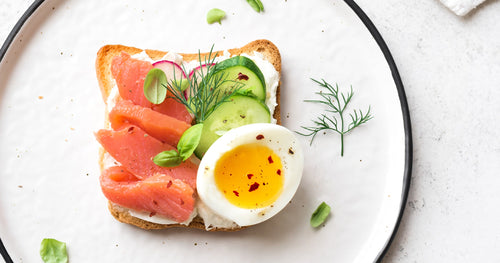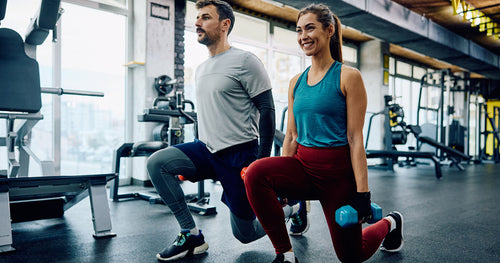
Building strong, resilient muscles is not just the domain of athletes and bodybuilders; it's a vital aspect of overall health that affects everyone. Strong muscles support daily activities, improve balance, enhance metabolic rate, and contribute to better posture and injury prevention. But how do we effectively build and maintain muscle strength? Enter the "Power Trio"—Vitamin D, Omega-3 fatty acids, and Protein. These three nutrients play crucial roles in muscle development and maintenance, making them essential components of any fitness regimen.
Understanding Muscle Health
Muscle growth and strengthening occur through a process called hypertrophy, which involves repairing microscopic tears in muscle fibers caused by exercise. This repair process makes the muscles larger and stronger over time. However, for optimal muscle development, certain nutrients are necessary to fuel this process. Without adequate nutrition, efforts in the gym may fall short of desired results.
The Role of Vitamin D in Muscle Strength
Vitamin D is often associated with bone health, but its benefits extend to muscle function as well. It helps regulate calcium levels in the blood, which is crucial for proper muscle contraction. Moreover, Vitamin D has been shown to enhance muscle protein synthesis—a key factor in muscle growth—and improve muscle performance.
Sources of Vitamin D include sun exposure, foods like fatty fish (salmon, mackerel), fortified dairy products, egg yolks, and supplements. Incorporating these sources into your diet can help ensure you get enough Vitamin D to support muscle health.
The Benefits of Omega-3 Fatty Acids for Muscles
Omega-3 fatty acids are renowned for their anti-inflammatory properties, which aid in reducing muscle soreness and speeding up recovery after intense workouts. By decreasing inflammation, omega-3s help minimize damage to muscle cells during exercise and promote quicker healing.
The best sources of omega-3s are fish oil supplements and oily fish like salmon, mackerel, anchovies, sardines and herring. Including these in your diet can enhance muscle recovery and performance.
Protein: The Building Block for Muscles
Protein is perhaps the most well-known nutrient when it comes to building muscles. It's composed of amino acids that are essential for repairing and growing muscle tissue post-exercise. Consuming adequate protein ensures that your muscles have what they need to recover from workouts and grow stronger.
The recommended daily intake varies depending on activity level but generally falls between 0.8 grams per kilogram of body weight for sedentary individuals to 1.6–2.2 grams per kilogram for those engaged in regular intense training. Excellent sources include lean meats (chicken, turkey), fish, legumes (lentils, chickpeas), eggs, dairy products, tofu, and quinoa.
Integrating the Power Trio into Your Diet
Incorporating Vitamin D, Omega-3s, and Protein into your daily meals doesn't have to be complicated. Start your day with a breakfast rich in protein—perhaps an omelet with spinach or Greek yogurt with nuts and seeds. For lunch or dinner, opt for grilled salmon or chicken paired with vegetables and a side salad containing pumpkin seeds or walnuts.
Balancing macro- (protein) and micronutrients (Vitamin D and Omega-3s) is crucial; aim to create meals that provide a variety of these nutrients throughout the day. Consider consulting with a nutritionist if you're unsure about creating balanced meal plans tailored to your needs.
Real-life Success Stories or Studies
Numerous studies underscore the effectiveness of this power trio in enhancing muscle health. Research published in "Nutrients" journal highlights how combining Vitamin D supplementation with resistance training significantly improves muscle strength among older adults—a demographic at risk for sarcopenia (muscle loss).
Athletes also testify to the benefits: Olympic swimmer Michael Phelps credits his high-protein diet enriched with omega-3s for aiding recovery after exhaustive training sessions. Similarly, fitness enthusiasts report feeling less fatigued and experiencing faster recovery times when integrating these nutrients into their diets consistently.
The journey toward building strong muscles involves more than just lifting weights; it requires strategic nutritional support from the Power Trio—Vitamin D, Omega-3 fatty acids, and Protein. Each component plays a unique role in supporting muscle function, growth, recovery, and overall health. Whether you're aiming for peak athletic performance or simply seeking to improve everyday functionality, embracing this trio could be the key to unlocking new levels of strength and vitality.






